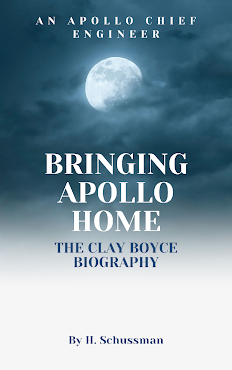Heading home now! It was strange
to stay in a 5 star hotel last night, with a warm pool and a giant Jacuzzi. The
bed was big and comfortable.
There weren’t any cats playing on the roof of our little jungle house. I couldn’t hear the pouring down rain, and therefore did not have any weird dreams about the lake rising and engulfing our house. It was actually a little sad.
The clothes have to be brought to the lake or streams for washing. The fisherman need to catch dinner. Corn must be ground to make tortillas. And of course they still have to go to their jobs at restaurants, hotels, schools, stores, and construction. If they have a moment of spare time the ladies will break out the back-strap loom and weave some new clothes (that’s after she hunts for the plants needed to dye the cotton after she has made the yarn). Pumas stones float along the shoreline like Styrofoam. There is just so much to do.
There weren’t any cats playing on the roof of our little jungle house. I couldn’t hear the pouring down rain, and therefore did not have any weird dreams about the lake rising and engulfing our house. It was actually a little sad.
I’ll miss wandering through remote
villages where people come to the door and watch you pass. They say hello, and
good morning with genuine smiles. The majority of the homes have one small
space with a cement floor and the rest is dirt.
They cook over wooden fires
inside the open air house. Around the lake you can see little smoke umbrellas
over the pueblas first thing in the morning, as they start cooking breakfast.
The Lanchas start carting people around the lake before daybreak. Rush hour
means you may not be able to fit on the boat, but another will come soon.
The trails around the lake’s edge
require constant repair as the lake rises during the rainy season. We explored
Jaibelito, the next village, because the wooden bridge to Santa Cruz washed out.
It took two days to repair because, 1) the neighbors were balking at paying
their share 2) it was still raining 3) they didn’t have enough wood to span the
wider stream 4) it takes longer to cut the boards to the right size because
they still use machetes’. I was the first person to test it. The guys all
stopped and collectively held their breath while I bravely walked across. Once
I proved it was safe, they all started laughing and talking at the same time.
Whew! The American lady didn’t plummet four feet to her death. Then Joe followed.
Poco y poco is a saying in Guatemala. Little
by little. The job will get done, but sometimes you have to wait for supplies.
Besides, everyone is so busy here, working, working, working. The bays have to
be cleaned out constantly to keeps the tulle grass at bay.
The grass has to be laid
out to dry, it has to be carted out to the fields because it’s used as a
fertilizer.
The clothes have to be brought to the lake or streams for washing. The fisherman need to catch dinner. Corn must be ground to make tortillas. And of course they still have to go to their jobs at restaurants, hotels, schools, stores, and construction. If they have a moment of spare time the ladies will break out the back-strap loom and weave some new clothes (that’s after she hunts for the plants needed to dye the cotton after she has made the yarn). Pumas stones float along the shoreline like Styrofoam. There is just so much to do.
The trails from village to village
are very safe (except to and from one town who doesn’t like foreigners). Most
of the men, and some of the ladies, carry machetes’ as they walk. You never
know when you might need to hack something down. They frequently clear the
trail, or cut down a tasty plant.
We rode in the back of a pick-up
with twenty other people for 25 cents into Santiego. We went to the memorial
from the recent civil war. In 1990 they had a peaceful protest at the military
gates, because they were sick of the attacks, killings, rapes, and theft. They
were shot from the safety of the military gate, killing 13 people (half of
which were children). The monument is haunting because the tombs are exactly
where the bodies fell. It created such an uproar that the government pulled out
of Atitlan and signed a contract to never use that military base again. So now
it is a beautifully maintained memorial site, with a giant entrance just beyond
the tombstones that leads to the jungle.
So we left this all behind
yesterday. A shuttle bus picked us up an hour late, and whisked us off to
Antigua . . . with a stop in a little mountain town, San Gorge, with a dirt
town square like you see in the old western movies.
With no explanation we stopped and sat there. Then the van driver got out and another man took his place. Then we were off for Antigua. I thought we were moving pretty fast on the winding roads until we were passed by a chicken bus. It was going so fast it looked like the inside tires were going to leave the ground. The top was loaded down with . . . everything. The inside was so packed with people it looked like a solid mass. Lee Beal our host and guide, told us the chicken buses (school buses) are exported from the USA. Once they get to Guatemala, they trick them out with engines used in big-rigs. Then they paint them bizarre colors and put a nascar want-to-be driver behind the wheel. Two weeks ago a bus flipped over and slid over the edge of a deep ravine. Its limit is 50 people. It had 85 people on it. 48 have died, including whole families (and the driver). But this is a miracle, because I can’t believe it doesn’t happen every single day. These guys are absolutely heartless.
With no explanation we stopped and sat there. Then the van driver got out and another man took his place. Then we were off for Antigua. I thought we were moving pretty fast on the winding roads until we were passed by a chicken bus. It was going so fast it looked like the inside tires were going to leave the ground. The top was loaded down with . . . everything. The inside was so packed with people it looked like a solid mass. Lee Beal our host and guide, told us the chicken buses (school buses) are exported from the USA. Once they get to Guatemala, they trick them out with engines used in big-rigs. Then they paint them bizarre colors and put a nascar want-to-be driver behind the wheel. Two weeks ago a bus flipped over and slid over the edge of a deep ravine. Its limit is 50 people. It had 85 people on it. 48 have died, including whole families (and the driver). But this is a miracle, because I can’t believe it doesn’t happen every single day. These guys are absolutely heartless.
Later, we were shuffled to a taxi,
once again with no explanation. And driven to Guatemala City with no chance to
eat. We’d left our cute little house at 7:30 via boat. We arrived at our hotel
at 3:30. We straggled into the reception desk, ignoring curious looks from the
more elegantly dressed guests. The pleasant English speaking young lady
informed us that our credit card had been blocked! We’d have to pay in cash.
Mind you, this is the last day of a month-long trip. Cash is not something we
had much of. We dug through our pockets and suitcases until we found the 80
bucks. Joe paid another 8 dollars to call Golden One Visa, only to be told that
they canceled everyone’s cards and re-issued them. Ours was safely waiting for
us at home in California. We had enough money to buy dinner and food at the
airports. Then we remembered our ATM card. Thank goodness . . . that meant I
could have a glass of wine last night J
Well, until the next adventure,
hasta luego
Joe and Heidi




















Joe and Heidi; great photos and great reading about your adventures in Atitilan. We will be heading up there in two weeks, right after our stint at the orphanato. It was nice meeting both of you.
ReplyDeleteIt was great meeting you and your amazing family. I can't imagine taking three children on a nine month home-school adventure down the Americas!
DeleteI'm jealous .............. my time will come, hopefully in this life.
ReplyDeleteSounds like you had a great trip! It was fun "reliving" Guatemala through your posts!
ReplyDeleteAmy, when did you go there?
ReplyDelete